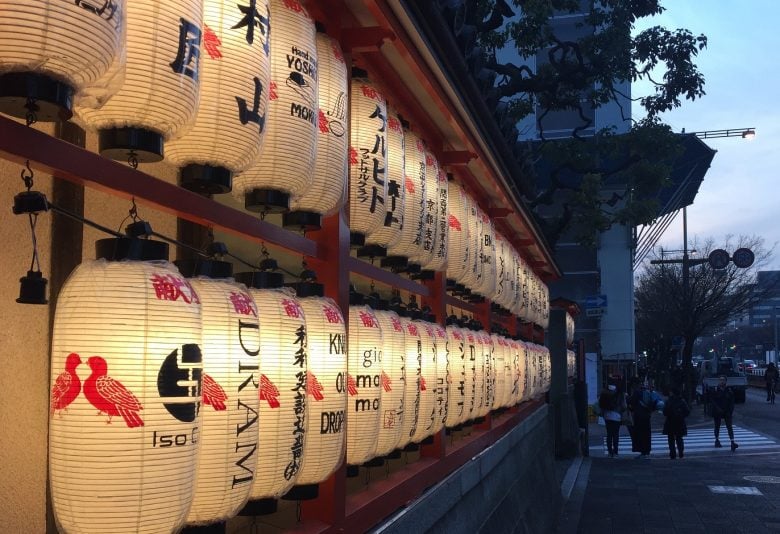
奇怪的日本迷信
在SAKURA HOUSE入住我們的任何帶私人房間的共享房屋單元、賓館式共享房間、私人公寓單元或我們方便的度假租賃之一時,享受您在東京的逗留或在京都的逗留將使您更接近立即了解日本的文化方面。
然而,還有其他一些方面是外國遊客無法在視覺上感知或普遍了解的。在這個櫻花小貼士中,我們研究了這些方面之一,每個文化都有,日本也不例外。我們指的是日本的迷信。
迷信可以是非常理性的,也可以是完全荒謬的,但它們可能看起來都共享一個有趣的故事,並展示了每種文化的另一個方面。那麼讓我們來看看這些迷信中的一些。
4 和 9 作為不吉利的數字
日語中4的讀音為“shi”(四),與死(死)讀音相同,因此經常被多次省略。可能會看到沒有顯示 4 樓的建築物或沒有 4 號車位的停車場。
因此,數字 9 與日文中可能的發音之一是“ku”(九)有著相似的原因,這與痛苦、痛苦或痛苦(苦)相同。
晚上剪指甲
人們相信,在夜間剪指甲會使死亡更近一步。其原因再次在於一個發音遊戲,其中“yotsume”(夜爪,字面意思是“夜指甲”)的發音與“到達生命的盡頭”(世詰め)相同。
看到靈車時隱藏拇指
拇指在日語中是“oyayubi”(親指,字面意思是“父母的手指”)。人們相信,將拇指藏在手掌中,與其他手指握拳,可以防止病者的靈魂進入自己的身體,也可以防止自己和父母早逝。
一張照片可能會帶走你的靈魂
在一個什麼都拍的時代,這可能是相當有爭議的,但這種信念是一個非常古老的信念。在拍照需要長時間保持靜止的時候,拍照後會很累。因此,認為冒充者的精神已被帶走。
晚上掛衣服
在過去,和服曾經由父母傳給他們的孩子(因為它們實際上相當昂貴)。這導致人們相信住在舊和服中的病人的靈魂。正因為如此,人們習慣在晚上掛出病人的和服。
時間流逝,這種習俗變成了一種迷信,認為晚上掛衣服可能會召喚病者的靈魂,也會帶來與死亡有關的厄運。
飯後休息,你可能會變成牛、豬或大象
這種迷信似乎起源於防止懶惰。
大耳垂帶來好運
這種迷信起源於七財神,或日語中的“七福神”,尤其是財神大黑天。有意思的是,這位神明的耳朵上似乎掛著非常大的耳垂,直接催生了這種迷信。
看到流星並許下3次願望
人們相信眾神會打開天堂,看看我們在地球上的情況。如此一來,天光便騰空而起。這個時候,只要說出自己的願望,就可以更容易地達到神明,從而實現。
許願3次的信仰尚不明確,但似乎只是代代相傳。
夢見富士山、鷹和茄子
新年伊始,人們相信,如果第一個夢想(“hatsuyume”)包括富士山、鷹和茄子的形象,那麼好運就要來了。
這種信仰的起源似乎發生在江戶時代,儘管直到今天還在討論具體細節,但一種理論再次將其解釋為所有 3 個對象發音的文字遊戲。
日語中的富士聽起來類似於tu“buji”(無事,安全或無事故)或“fushi”(不死,不朽或永生)。
鷹,日語中的“taka”,發音與高或高(高)相同,意味著有可能取得巨大成就。
茄子與動詞“完成或成為”(成す)的發音相同。
早上好蜘蛛
早上看到蜘蛛被認為是一個好兆頭。這是因為自古以來,日本人就認為蜘蛛是連接這個世界和另一個世界的紐帶,帶來幸福。這可能與蜘蛛在天氣好的時候似乎會結網有關。
晚上有壞蜘蛛
與早晨的蜘蛛相反,據說晚上看到蜘蛛是不吉利的,是吸引小偷進屋的標誌。這似乎是因為夜蜘蛛在黑暗中撒網以捕捉它們的祈禱。為了防止吸引竊賊,在此類事件發生之前殺死蜘蛛被認為是可以的。
還有更多的迷信在時間的流逝中倖存下來,有些也得到了發展。我們希望這些少數人能夠再次了解日本文化的有趣方面。如果您期待開始在日本的生活體驗,請隨時聯繫我們的專業專家團隊,為您在日本找到家。
SAKURA HOUSE
Nishi-Shinjuku K-1 Bldg. 2F
7-2-6 Nishi-Shinjuku,Shinjuku-Ku Tokyo,Japan
郵政編碼:160-0023
谷歌地圖







